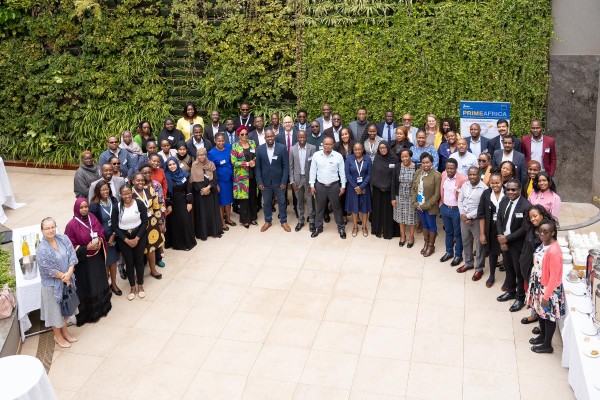Repository of Practices

National Remittance Stakeholders Networks (NRSNs)
Dates
Type of practice
Geographic scope
Country:
Regions:
Sub Regions:
Summary
The International Fund for Agricultural Development (IFAD), through the Financing Facility for Remittances (FFR) is currently implementing the Platform for Remittances, Investments and Migrants’ Entrepreneurship in Africa (PRIME Africa). As part of the PRIME Africa programme activities, starting from April 2020, seven National Remittance Stakeholder Networks (NRSNs) were created, namely in Ghana, Kenya, Morocco, Senegal, South Africa, The Gambia and Uganda. The NRSNs work as platforms (each country has a dedicated mail) to gather the key stakeholders in the remittance industry with the ambition to facilitate the dialogue among the parties, share information, challenges, and good practices to promote development opportunities created by remittance flows through innovations, partnerships and scalable products, while fostering the digitization of financial services and financial inclusion. The main beneficiaries of this initiative are the remittances senders and receiver of the seven targeted countries, while the key activities have been the approval of the country dedicated diagnostics and the validation of the country dedicated Roadmaps. To this end, NRSNs stakeholders have been invited to input their thoughts and comments on the two aforementioned documents through different activities namely dedicated meetings, on line survey and several one to one interactions.
Organizations
Main Implementing Organization(s)
Partner/Donor Organizations
Benefit and Impact
Connecting remittance stakeholders across sectors, who would have less contacts otherwise, lead to a series of positive effects like i) the improved use of remittance related of knowledge derived from an enhanced awareness of the local and regional remittance market, ii) the identification of solutions to common problems by the capitalization of the stakeholders connections, iii) the development of innovative initiatives given by the identification of good practices.
Together, these activities will benefit the remittance families of the seven targeted countries, and not only, since they contribute to the reduction of cost of remittances and the promotion of financial inclusion.
Key Lessons
Fortunately, this initial negative aspects have been transformed in strengths. Indeed for each e-meeting organized the rate of participation and interaction has increased. to this end, the e-meetings have been recorder, therefore the participants with connection issue have had the possibility to listen to them. While to overcome the lack of face to face contact various one to one meetings have been organized.
Recommendations(if the practice is to be replicated)
1) Checking whether a similar network already exists, and if yes and if possible create synergies
2) Identify that the most relevant stakeholders in the country
3) Make sure that all relevant stakeholders are involved since the beginning
4) Make sure that all the remittance stakeholders across sectors, are invited to join, from both the remittance sending and receiving sides, including: Government, government agency, Government-owned corporation or state-owned enterprise, Multi- bi-lateral organization, NGO/non-profit, Private Sector, University, educational or research institute
5) Make sure all stakeholders receive equal treatment
Innovation
1) Their multi-stakeholder nature, hence the possibility for people who usually do not talk to each other, to meet and exchange ideas, opinions, practices and to advocate towards common goals.
2) The fact that the Networks have been entirely created and developed virtually given the pandemic
3) Their long term sustainability due to their double use of the
a)Linked-In closed groups that allows all NRSNs members to interact freely and the
b) official website where the reporting of each network takes place and in which a repository of all relevant remittance country (and not only) related documents are stored.
Date submitted:
Disclaimer: The content of this practice reflects the views of the implementers and does not necessarily reflect the views of the United Nations, the United Nations Network on Migration, and its members.
More Related Practices:
- Resiliencia y Protección: Casa de Seguridad para Activistas Nicaragüenses en Honduras y Costa
- Migrant Domestic workers and research supporting campaign and litigation for inclusion in the Compensation for Occupational Injuries and Diseases Act
- Migration and Sustainable Development in The Gambia (MSDG)
- Engaging Migrants and Diaspora Communities for an Inclusive and Climate-Resilient Blue Economy in Kenya
- Engagement of migrants in migration management of Azerbaijan
Peer Reviewer Feedback:
*References to Kosovo shall be understood to be in the context of United Nations Security Council resolution 1244 (1999).
Newsletter
Subscribe to our newsletter.